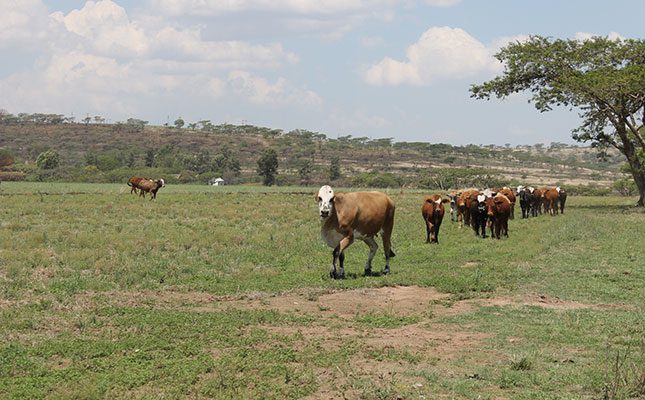
From foot-and-mouth disease (FMD) and highly pathogenic avian influenza (HPAI) to crop pests, the country has made it clear that African producers cannot carry the burden of disease outbreaks alone.
For farmers, the outcomes of the G20 Leaders’ Summit will not solve their challenges overnight. However, they will shift the global playing field in ways that matter for day-to-day farming, export prospects, and future disease preparedness.
Importantly, South Africa’s G20 presidency has positioned the continent as a global leader in pushing for stronger, better-funded, more coordinated biosecurity systems.
Why biosecurity became the G20’s top agricultural priority
South Africa has faced a series of devastating disease outbreaks in recent years, including FMD, HPAI, lumpy skin disease, and African swine fever. Each outbreak costs the country millions in lost trade and causes massive disruptions and financial losses for livestock and poultry farmers.
During the G20, the case was made that:
- Climate change is accelerating the spread of pests and diseases;
- Africa’s surveillance systems are uneven and underfunded;
- Outbreaks undermine food security and rural livelihoods; and
- No country can manage disease threats alone.
These arguments seemingly landed, and for the first time, the G20 endorsed a global biosecurity co-operation agenda led by an African nation.
What the G20 Agriculture Working Group agreed to, and why it matters
- A regional cross-border disease surveillance network: This includes satellite-supported monitoring and pathogen genomics, which are tools that can detect diseases earlier and more accurately. For producers, this translates into:
- Faster outbreak warnings;
- Better tracking of disease movement; and
- Fewer surprises that shut down livestock movement or sales.
- Standardised rapid-response protocols: The G20 backed the development of harmonised emergency playbooks for FMD, HPAI, and emerging zoonoses.
This should, over time, mean:
- Fewer delays in government action;
- More predictable decision-making during outbreaks; and
- Clearer farm-level guidance when movement controls kick in.
- Quicker, more transparent disease reporting
Producers often complain that they receive outbreak information long after the disease has spread. The G20 endorsed a commitment to globally interoperable data systems that make reporting faster and more transparent.
This will help farmers make properly informed decisions sooner, including movement planning and vaccination strategies.
- Investment in diagnostic laboratories
South Africa strongly pushed for this. The G20 agreed that Africa needs:
- More diagnostic labs;
- Upgraded equipment;
- Mobile testing units; and
- Quicker sample turnaround.
This is one of the most direct wins for farmers. Slow lab feedback has often exacerbated outbreaks; thus improved capacity will shorten containment times and reduce the scale of losses.
How Australia fits into South Africa’s biosecurity push
Australia has one of the strongest biosecurity systems in the world, and during the G20, South Africa deepened its agricultural relationship with the former. During bilateral engagements, South African officials highlighted three areas where Australian experience could immediately strengthen our own systems:
- Strong public–private co-operation: In Australia, industry bodies, government, and researchers collectively set priorities and fund disease-prevention work. Farmers have a direct say in what the system focuses on.
- Co-funded research and biosecurity budgets: Australian farmers pay commodity levies, and government matches every dollar of industry funding. This model creates stable financial support for biosecurity research and disease surveillance.
- Highly coordinated national–state response systems: Outbreaks are managed through clear protocols shared between all levels of government, which is something South Africa still battles with during FMD and HPAI outbreaks. Our livestock industry could benefit significantly from a similar approach.
What the G20 biosecurity decisions mean for farmers right now
The benefits will roll out gradually, but several improvements are on the horizon:
- Faster outbreak detection: better surveillance and quicker lab results mean farmers get earlier warnings and clearer guidance.
- More predictable export conditions: harmonised sanitary and phytosanitary measures will reduce the risk of sudden market closures, especially for beef, wool, dairy, and poultry exporters.
- Improved communication during disease outbreaks: the G20 push for better data-sharing, which should result in more timely information reaching producers.
- Greater investment in veterinary services: with G20 support behind Africa’s biosecurity systems, funding for vets, laboratories, and border controls is more likely to be realised.
- Stronger justification for upgrading South Africa’s own systems: government can now align domestic biosecurity reforms with global priorities, giving weight to planned upgrades under the Agriculture and Agro-processing Master Plan.
For South Africa to turn these global commitments into real change, the next steps for the country need to be:
- Finalising a national biosecurity compact covering disease surveillance, rapid response, and cross-border coordination.
- Upgrading laboratories and provincial veterinary capacity, especially in high-risk livestock zones.
- Improving on-farm preparedness with clearer biosecurity guidelines and proper extensive training for producers.
- Strengthening border inspection and movement-control systems.
- Building a public-private research funding model similar to the Australian levy-matching system.
These are all achievable, but will only be effective with consistent goal-orientated implementation.
The bottom line
South Africa’s G20 presidency has achieved one of the most important global shifts for agriculture in years: it elevated biosecurity from a local challenge to an international priority. For producers, this means the world is finally recognising what they experience every day – an increasing risk of disease and intensifying climate pressures – and that better cooperation is essential.
With the right follow-through, the G20 summit outcomes could mark the beginning of a safer, more predictable, and more export-competitive era for South African agriculture.
Biosecurity is no longer a side issue; it’s a core pillar of profitability, resilience, and the future of food production.
Get trusted farming news from Farmers Weekly in Google Top Stories.
➕ Add Farmers Weekly to Google ✔ Takes 10 seconds · ✔ Remove anytime






